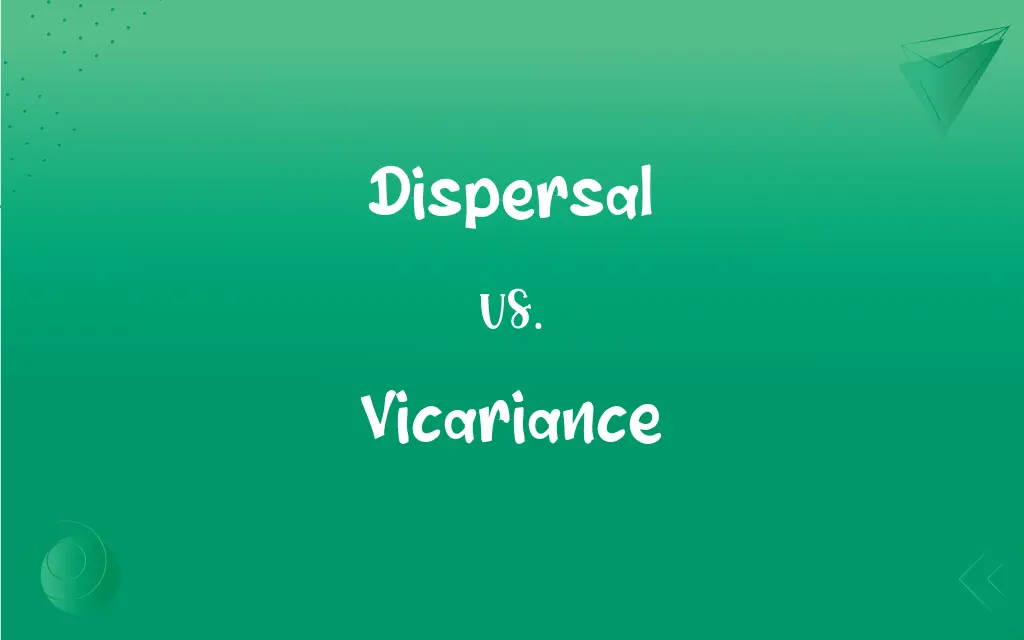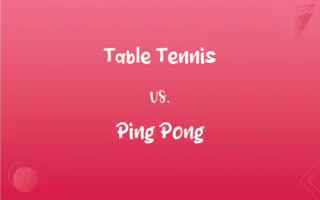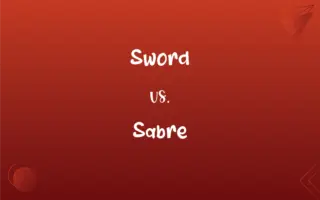Dispersal vs. Vicariance: What's the Difference?
Edited by Janet White || By Harlon Moss || Published on February 8, 2024
Dispersal is the movement of organisms from one place to another, while vicariance refers to the geographical separation of a species due to barrier formation.

Key Differences
Dispersal involves organisms actively or passively moving to new locations. Vicariance, in contrast, occurs when a physical barrier, like a mountain range or river, divides a species into separate groups.
Dispersal can lead to colonization of new areas and potential speciation. Vicariance can result in divergent evolution in isolated populations.
Dispersal is a key factor in explaining how species spread across various landscapes. Vicariance explains how species become distributed by being split into separate populations through geological changes.
Dispersal can happen quickly, even within a single generation. Vicariance usually occurs over longer geological timescales.
An example of dispersal is birds flying to a new island. An example of vicariance is a species being divided by the formation of a new river.
ADVERTISEMENT
Comparison Chart
Definition
Movement of organisms to new areas
Geographical separation due to barriers
Time Frame
Can be rapid
Typically occurs over longer periods
Mechanism
Active or passive movement
Formation of physical barriers
Evolutionary Impact
Colonization and potential speciation
Divergent evolution in isolated groups
Biogeographical Role
Explains spread across landscapes
Explains distribution by separation
ADVERTISEMENT
Dispersal and Vicariance Definitions
Dispersal
Movement.
Dispersal occurs when animals migrate to new habitats.
Vicariance
Geographical Separation.
Vicariance can occur when a new river divides a species.
Dispersal
Colonization.
Animal dispersal leads to the colonization of islands.
Vicariance
Evolutionary Process.
Vicariance is a key process in evolutionary biology.
Dispersal
Species Spread.
Seed dispersal helps plants colonize new areas.
Vicariance
Barrier Formation.
The rise of a mountain range is an example of vicariance.
Dispersal
Genetic Distribution.
Genetic dispersal increases biodiversity.
Vicariance
Speciation.
Vicariance often leads to speciation due to isolated populations.
Dispersal
Population Dynamics.
Dispersal patterns affect population distributions.
Vicariance
Biogeography.
Vicariance explains the distribution of species in different continents.
Dispersal
The act or process of dispersing or the condition of being dispersed.
Vicariance
The division of a widespread group of organisms by a geographic barrier, such as a mountain range or a body of water, often resulting in the evolution of related species on either side of the barrier.
Dispersal
The act or result of dispersing or scattering; dispersion.
Vicariance
(biology) The separation of a group of organisms by a geographic barrier, resulting in differentiation of the original group into new varieties or species.
Dispersal
A dispersal prison.
Vicariance
(geology) The geological event which produces such a barrier (volcano, earthquake, etc)
Dispersal
The act or result of dispersing or scattering; dispersion.
Vicariance
The act of experiencing an event by proxy through an empathic link with the person who is experiencing the event firsthand.
Dispersal
The act of dispersing or diffusing something;
The dispersion of the troops
The diffusion of knowledge
FAQs
What does vicariance mean?
Geographical separation of a species due to natural barriers.
What is dispersal?
Movement of organisms from one location to another.
Is vicariance a quick process?
No, it usually happens over long geological timescales.
What are examples of dispersal?
Birds migrating to new areas or seeds being carried by the wind.
What causes vicariance?
Events like continental drift, river formation, or mountain building.
Does human activity affect dispersal?
Yes, through habitat destruction and introducing species to new areas.
Can dispersal lead to new species?
Yes, through colonization and adaptation to new environments.
Can vicariance be caused by human activities?
Indirectly, through actions that alter landscapes.
How does dispersal affect species?
It can lead to colonization of new areas and genetic mixing.
Can vicariance lead to biodiversity?
Yes, by creating isolated populations that evolve differently.
How does vicariance affect animal populations?
It can create genetically distinct populations.
What role does vicariance play in evolution?
It leads to divergent evolution in separated populations.
Does vicariance always lead to new species?
Not always, but it can contribute to speciation.
What tools do scientists use to study dispersal?
GPS tracking, ecological modeling, and genetic analysis.
How does dispersal impact ecosystems?
It introduces new species and genetic diversity to ecosystems.
How do researchers study vicariance?
Through fossil records, geological data, and genetic studies.
Are plants affected by dispersal?
Yes, especially in seed dispersal and colonization.
Is dispersal always intentional?
No, it can be passive, like seeds carried by wind.
What is a vicariant event?
A geological or environmental change that separates species.
Can dispersal occur underwater?
Yes, through currents and aquatic animal movements.
About Author
Written by
Harlon MossHarlon is a seasoned quality moderator and accomplished content writer for Difference Wiki. An alumnus of the prestigious University of California, he earned his degree in Computer Science. Leveraging his academic background, Harlon brings a meticulous and informed perspective to his work, ensuring content accuracy and excellence.
Edited by
Janet WhiteJanet White has been an esteemed writer and blogger for Difference Wiki. Holding a Master's degree in Science and Medical Journalism from the prestigious Boston University, she has consistently demonstrated her expertise and passion for her field. When she's not immersed in her work, Janet relishes her time exercising, delving into a good book, and cherishing moments with friends and family.
































































